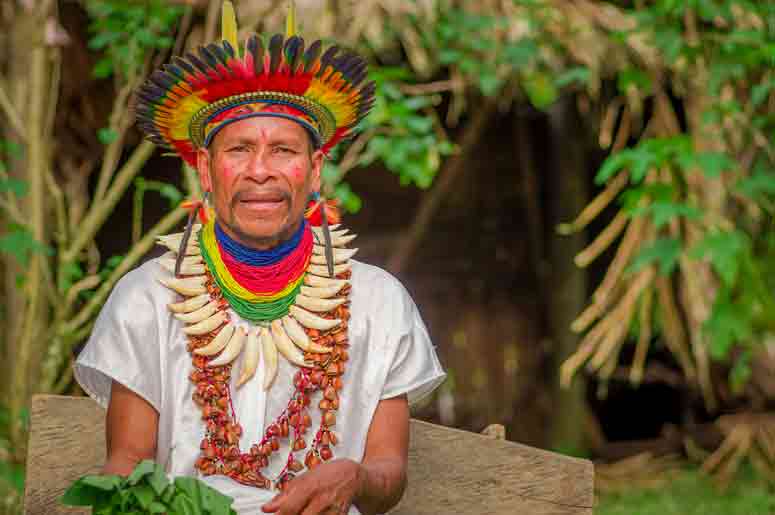Amazon Forest Plants
What is Shamanism?
“Shamanism” is something that cannot be reduced to a single definition or explanation. Religion, belief, ritual, system of thought, ontology, configuration of the world: such are some of the polemical categories that arise to the mind when it comes to making a brief presentation on the subject.
The term, generic and misunderstood, is used to designate one of the oldest ritual system of the world. It is shared by peoples that extend from Asia to the extreme south of America.
The word “Shaman” seems to derive from çaman, word used by the Siberian Evenks to designate their ritual specialists. It is analogous to “pajé”, derived in turn from terms of the Tupi-Guarani languages also used in reference to such specialists. Each of the Amerindian languages has its equivalent terms, in any part of the three continents.
Shamanism thus represents a common basis for the indigenous peoples of Asia and the Americas, since this continent was occupied by successive migrations coming from the former. On the former, shamanism was superimposed by great religions such as Buddhism, Confucianism, Taoism, Christianity, and Islam. Something analogous to what happens in Brazil, when indigenous shamanism begins to confront the Catholic or Protestant creed.
This is, in fact, a good way to understand one of the essential features of the phenomenon: shamanism does not always disappear in confrontation with great religious systems.
Perhaps because it can not be understood exactly as a “religion”, it eventually infiltrates, subverts, or survives the conversion attempts that have been made in Brazil since the European invasion.
We are dealing, after all, with a certain organization or configuration of the world that does not have an established dogma, a set of doctrines or some sacred scripture, a fixed liturgy, a body of priests organized around the state or, more important, a faith in some one divinity. It is difficult, therefore, to define shamanism as a belief.
Such absences are especially valid for the indigenous peoples of the lowlands of South America, that is, for those who did not live under the domination of state organizations, such as the Inca empire. Mediation by Amazonian shamans has more to do with a certain diplomacy, a way of translating and connecting living humans to the multitude of spirits, souls of the dead and animals that constitute the indigenous cosmologies.
In these, there are not exactly gods who incarnate or who holds powers over natural phenomena, for which temples are erected and offered sacrifices (as in the case of the Aztecs or the Maya). The entities with which the indigenous shamans relate are of another order. Rather than dispatch a sacrificial victim as an intermediary between gods and humans, the shamans go in person to find the spirits and other subjects that inhabit their worlds.
Here are some videos that go deeper into what shamanism is both in Siberia and South America:


